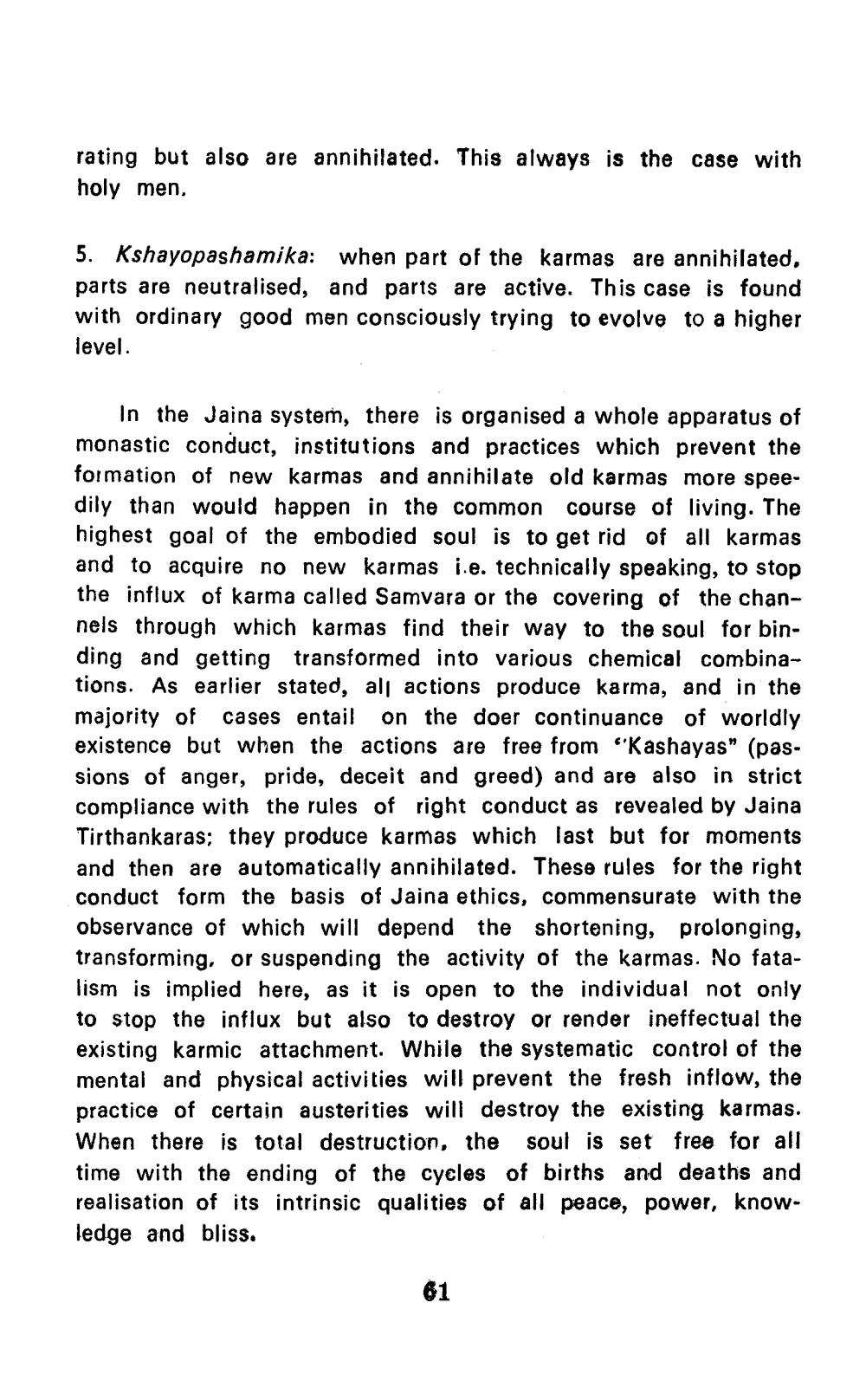________________
rating but also are annihilated. This always is the case with holy men,
5. Kshayopashamika: when part of the karmas are annihilated, parts are neutralised, and parts are active. This case is found with ordinary good men consciously trying to evolve to a higher level.
In the Jaina system, there is organised a whole apparatus of monastic conduct, institutions and practices which prevent the formation of new karmas and annihilate old karmas more speedily than would happen in the common course of living. The highest goal of the embodied soul is to get rid of all karmas and to acquire no new karmas i.e. technically speaking, to stop the influx of karma called Samvara or the covering of the channels through which karmas find their way to the soul for binding and getting transformed into various chemical combinations. As earlier stated, all actions produce karma, and in the majority of cases entail on the doer continuance of worldly existence but when the actions are free from "Kashayas" (passions of anger, pride, deceit and greed) and are also in strict compliance with the rules of right conduct as revealed by Jaina Tirthankaras; they produce karmas which last but for moments and then are automatically annihilated. These rules for the right conduct form the basis of Jaina ethics, commensurate with the observance of which will depend the shortening, prolonging, transforming, or suspending the activity of the karmas. No fatalism is implied here, as it is open to the individual not only to stop the influx but also to destroy or render ineffectual the existing karmic attachment. While the systematic control of the mental and physical activities will prevent the fresh inflow, the practice of certain austerities will destroy the existing karmas. When there is total destruction, the soul is set free for all time with the ending of the cycles of births and deaths and realisation of its intrinsic qualities of all peace, power, knowledge and bliss.
61




